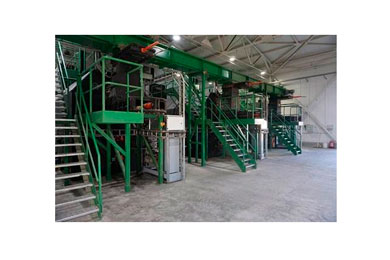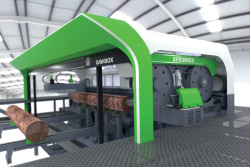The second stage of KsilotekSibir LLC fuel pellet plant has been launched five months in advance of the project schedule at the manufacturing site of Lesosibirsky LDK No. 1 JSC, asset of Segezha Group (part of Sistema JSFC). The new plant has brought the total pellet production capacity of the company to 110.5 thousand tons of pellet granules per year.
The first construction stage of the third manufacturing line with an output of 30 thousand tons per year lasted from August to December 2019. It resulted in the commissioning of the third pellet press with an output of 4.5 t of fuel pellets per hour.
Equipment for the second, conclusive stage of construction was received at the mill on March 3 this year. The team of Lesosibirsky LDK No. 1 JSC started the installation in parallel with unloading and transportation of the line’s constituent units. The works had been in progress for one month and used only the mill’s own resources, without disruption of the existing production process or demolition of buildings, and with participation of Hekotek, the Estonian equipment producer.
Lesosibirsky LDK No. 1 Technical Director and Project Manager Evgeniy Verevkin says that successful project completion was driven by cohesive co-operation between LDK No. 1 and Hekotek teams and proactivity in implementation of the team’s own improvement ideas. “During installation the team, including workers engaged at the construction site, acted with a high level of competence and professional skill. The implemented improvement ideas have significantly reduced the project timing and costs. Launch of equipment without fail or hitch was possible owing to the high efficiency and commitment of the team.”
The first two fuel pellet manufacturing process lines with a capacity of 70 thousand tons of finished product were launched at the industrial site of KsilotekSibir LLC, part of Lesosibirsky LDK No. 1, in December 2018.
The equipment is intended for manufacturing of 6 mm and 8 mm diameter pellets from sawn timber production and processing waste – natural humidity sawdust and wood chips. The disposal of wood logging byproducts is effected by means of transforming these products into biofuel and heat.
Presently Lesosibirsk mill dispatches three container trains per month to the Baltic ports for further shipment to Denmark and other EU countries.







